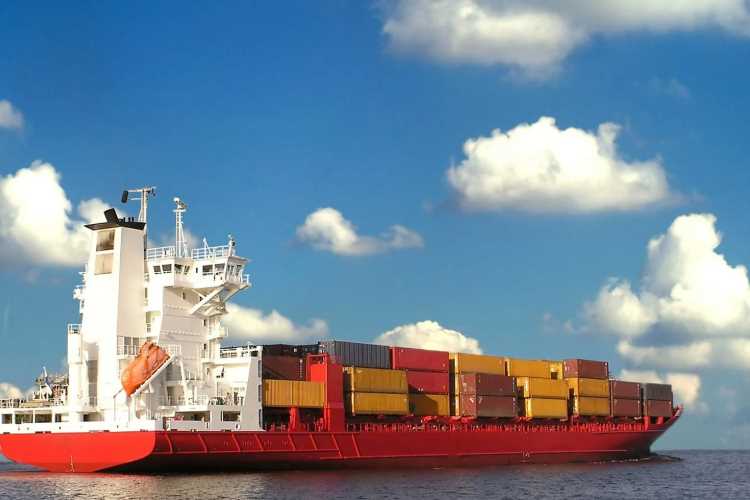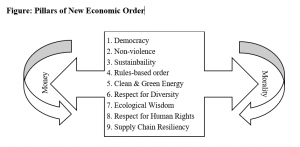
The new economic order: India has signalled its readiness to join a new economic initiative widely referred as the Indo-Pacific Economic Framework for Prosperity. IPEF includes 13 countries from the Indo-Pacific region and is deemed to be centred around four main pillars – trade; supply chain resilience; clean energy and decarbonisation; and taxes & anti-corruption measures. The evolving global economic architecture is witnessing a paradigm shift in economic policy orientation, thanks to volatility and ambiguity created by the trade wars, Covid-19 pandemic, Russia-Ukraine War and associated economic sanctions, financial exclusions, commercial boycotts, and supply-chain disruptions.
These developments have renewed the old debate on a new economic order. The debate has two parties – the first being the Western powers such as the EU, the US, and like-minded countries from different parts of the world (Australia, Japan, South Korea etc). The rival group comprises Russia, China, North Korea, Iran, Venezuela and few more, working to enhance their economic interests in the emerging world order. India is unattached in its policy orientations, and has close ties with both the groups. It is reaping the benefits of its association with both the sides.
The Indo-Pacific Economic Framework for Prosperity is an diplomatic initiative by US President Joe Biden. It looks to be a precursor for future negotiations towards lowering of tariffs. The IPEF summit took place on May 23, 2022.
READ I WTO Ministerial 2022: All eyes on India as digital economy faces threat

Emerging new economic order
From a spate of recent bilateral, regional, and global policy overtures, it can be assumed that the world is moving towards a fair, rule-based, and principled trade regime. The key pillars of the new regime (figure 1) indicate that future trade pacts and economic partnerships shall revolve around them.
During her recent visit to India, EU Commission President Ursula Gertrud von der Leyen openly advocated of harbouring and nurturing trade relationship with the countries that respect democratic norms, are non-violent and trust in a rule-based world order based on human rights, ecological resources, diversity, clean and green energy and sustainability.
READ I WTO ministerial: India’s stance on e-commerce taxes may be counter-productive
For trade to become seamless and uninterrupted, the supply-chain resilience has emerged as a new pillar of fair, transparent and principled trade. There are two centrifugal forces working on it — enhanced trade but with morality, trade with countries that respect principles of fair, transparent and principled trade.
India cannot remain oblivious of these evolving geo-economic realities shaping the new economic order. Accordingly, to become a partner or stakeholder in the evolving new economic order, there is a need to inculcate these underlying principles in our domestic policy measures including educational curricula, civic norms and cultural values which shape young minds.
As the largest democracy of the world, India has an advantage, should it reorient its domestic policy and administrative measures to promote ecological wisdom (renewable energy, clean air and water conservation). India is watched in the western world as a testing ground for promoting these norms and values.
Germany has committed to provide additional support worth 10 billion euros to India by 2030 to support green growth initiatives. Similarly, India and Denmark have agreed to work together on key sectors to enhance trade by expanding and strengthening cooperation on energy and climate change; environment/water and circular economy; sustainable urban development including smart cities; and business, trade and shipping, based on the guiding principles of morality. Indo-Pacific Economic Framework for Prosperity (IPEF) is an economic opportunity for India. It should strive to gain from the changing economic order.
(Dr Ram Singh is Professor and Head (trade operations) at Indian Institute of Foreign Trade, New Delhi. Aaquib Chaudhary is a research scholar at IIFT.)

